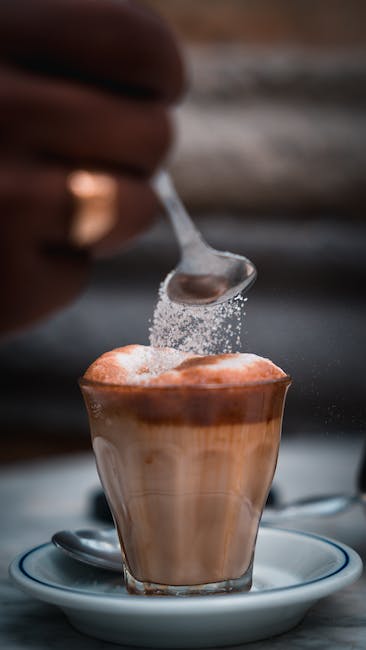Monk Fruit vs Stevia: The Ultimate Sweetener Showdown
Are you on a quest to find the perfect natural sweetener? With so many options on the market, it can be challenging to choose the right one for your dietary needs and taste preferences. Two of the most popular sugar alternatives that have been gaining traction are monk fruit and stevia. But which one is superior? In this comprehensive guide, we’ll delve into the world of monk fruit and stevia, comparing their taste, health benefits, and uses to help you make an informed decision.
What is Monk Fruit?
Origins and Nutritional Profile
Monk fruit, also known as Luo Han Guo, is a small round fruit native to Southeast Asia. It has been used for centuries in traditional Chinese medicine for its health benefits. The sweetness of monk fruit comes from natural compounds called mogrosides, which are antioxidants that are metabolically different from sugars.
Why Choose Monk Fruit?
- Zero Calories: Monk fruit sweetener contains no calories, making it an excellent choice for weight management.
- Doesn’t Affect Blood Sugar: It is safe for diabetics as it doesn’t spike blood glucose levels.
- Antioxidant Properties: The mogrosides in monk fruit have antioxidant properties that may contribute to overall health.
What is Stevia?
Background and Composition
Stevia is derived from the leaves of the Stevia rebaudiana plant, native to South America. It has been used for hundreds of years to sweeten beverages and make tea. The active compounds in stevia, called steviol glycosides, are responsible for its sweet taste.
Reasons to Opt for Stevia
- Calorie-Free: Like monk fruit, stevia is a zero-calorie sweetener, which is ideal for those monitoring their caloric intake.
- Blood Sugar Management: Stevia does not raise blood sugar levels, making it diabetic-friendly.
- Dental Health: Stevia may help in reducing the risk of cavities since it does not feed plaque-causing bacteria in the mouth.
Comparing Taste Profiles
Monk Fruit Sweetness
Monk fruit sweeteners are known for their intense sweetness, which can be up to 200 times sweeter than sugar. It has a unique flavor that some describe as fruity or slightly melon-like. The aftertaste can vary depending on the brand and the concentration of mogrosides.
Stevia’s Flavor Characteristics
Stevia is also much sweeter than sugar, about 150 to 300 times more. However, some people notice a licorice-like aftertaste, which can be off-putting for certain taste buds. The quality of stevia can greatly influence its taste, with higher purity products generally having a cleaner sweet profile.
Health Benefits and Concerns
Monk Fruit Health Considerations
- Allergies: Monk fruit allergies are rare, making it a safe option for most people.
- Gastrointestinal Effects: Some may experience digestive discomfort if consuming monk fruit sweeteners in large quantities due to added sugar alcohols or other bulking agents.
Stevia and Your Health
- Regulatory Approval: Stevia has been extensively studied and approved by many international health organizations.
- Bitterness: The potential bitter aftertaste of stevia might be a concern for some users, although this is largely dependent on the product’s purity.
Culinary Uses and Versatility
Cooking with Monk Fruit
Monk fruit sweetener is heat stable, which means it can be used in cooking and baking without losing its sweetness. It works well in:
- Beverages
- Sauces and dressings
- Desserts
Stevia in the Kitchen
Stevia is also versatile and heat stable, suitable for:
- Sweetening coffee or tea
- Baking (with adjustments for its intense sweetness)
- Making homemade jams and jellies
Environmental Impact and Sustainability
Monk Fruit’s Ecological Footprint
Monk fruit is primarily grown in specific regions of China and Thailand, which may raise concerns about its carbon footprint due to transportation. However, the farming practices are generally sustainable.
Stevia’s Green Credentials
Stevia plants are hardy and require less land and water than sugar cane. This makes stevia a more eco-friendly option compared to traditional sweeteners.
Conclusion: Which Sweetener Should You Choose?
In the battle of monk fruit vs stevia, the best choice ultimately depends on your personal preferences and health goals. Both sweeteners offer a healthier alternative to sugar without the calories and with minimal impact on blood sugar levels. Consider the taste, potential health benefits, and environmental impact when making your decision.
Whether you’re baking a batch of guilt-free cookies or sweetening your morning coffee, monk fruit and stevia are excellent options to explore. By understanding the nuances of each sweetener, you can enjoy the sweetness you crave while maintaining a healthy lifestyle. Choose wisely, and sweeten your life the natural way!


